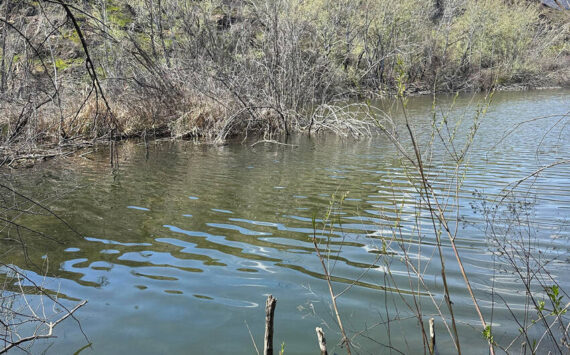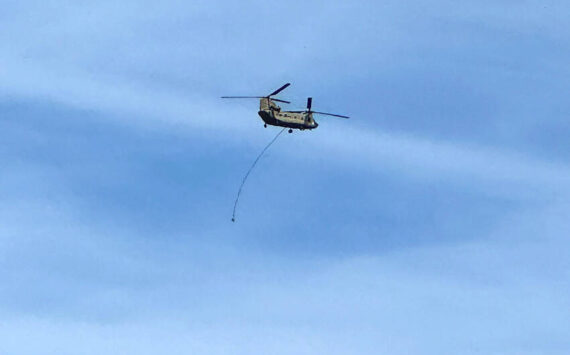 Last week we ran an article on Rep. Joel Kretz’ efforts to introduce legislation to reintroduce wolves to the west side of the state. Although sounding somewhat tongue-in-cheek, the Seventh District legislator from Wauconda is completely serious about the issue.
Last week we ran an article on Rep. Joel Kretz’ efforts to introduce legislation to reintroduce wolves to the west side of the state. Although sounding somewhat tongue-in-cheek, the Seventh District legislator from Wauconda is completely serious about the issue.
If Western Washington legislators are going to sing the economic and environmental benefits of having wolves in our back yards, shouldn’t the same be true for the their side of the state? Even Washington State’s Wolf Conservation and Management Plan says recovery requires distribution of the gray wolves throughout the state. Yet all the wolves that have been counted, six known packs, are on the eastern part of the state some right here in Okanogan County.
If wolves aren’t going to be shared with our Western Washington cousins, then Kretz feels they should be delisted from the state’s endangered list, as the federal government has already concluded the wolf has recovered in Eastern Washington. They removed the wolf from the federal endangered list for the Rocky Mountain Region in 2009 (which includes the eastern third of Washington), but the Washington State Department of Wildlife hasn’t.
Delisting is exactly what the Okanogan County Commissioners are asking of the WDFW. They, along with the commissioners from seven other counties in northeastern and North Central Washington have asked the wolf be delisted. A petition has been written by the Eastern Washington Council of Governments, which includes the seven counties asking for the delisting. In the petition they write, “These additional packs positively augment the conclusive federal data that the wolf is recovered in eastern Washington and is no longer ‘failing, declining, or vulnerable’ as required in state law for delisting.”
A similar request from the Okanogan County Commissioners and the Council of Governments was turned down earlier by the director of the WDFW, who concluded that the number of wolves was not sufficient to constitute a healthy self-sustaining population.
So who is right, the federal government or the state director of WDFW? And if state law requires that the wolves be reestablished throughout the state then maybe the idea being pushed by Rep. Kretz isn’t so farfetched. If the law says they should be reestablished throughout the state, then Kretz has a point. We know that last week’s article was trending highest on our website so it seems to have caught the the attention of our readers.
In many ways wolves have gotten a bad rap. From “Little Red Riding Hood” to the tale of the sled-borne wedding party in Willa Cather’s “My Antonia,” wolves have been painted the villain. Although wolves are much more likely to avoid humans than hunt them – even modern day portrayals, like that in the recent movie “The Gray” spread fear of the animals.
However, coming from a ranching family, that’s not to say the concerns of local ranchers should be taken lightly. It’s been proven that in other states like Idaho and Montana that depredation of livestock by wolves can be a problem. Our state recommends those that suffer depredation treat the area like a crime scene so they or federal agents can investigate. Whether listed or not, ranchers should be compensated for livestock taken by wolves.
Those that think that wild predators won’t do harm to livestock should see some of the graphic photographs of horses that have been killed on Kretz’ ranch by cougars in the past. If the state insists on keeping the wolves listed as an endangered species, than everyone should share in the burden of this decision – ranchers should be compensated for lost livestock and people on the west side of the state should embrace a return of the wolves to both sides of Washington.





